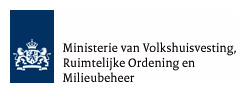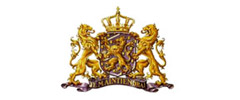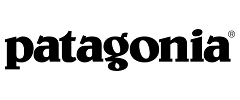Women Major Group preparing submission on Rio+20 to UN
The women Rio+20 steering committee is calling for input for a global position of women on Rio+20 to be submitted to the UN before the deadline of 1 of November 2011.
11.10.2011 |Sascha Gabizon
There are several ways to provide input into the women's major group submission:
1. Take part in the global survey at http://women-rio20.ning.com/
2. Contact the Women Rio+20 Steering Committee to join the email listserve via wecf@wecf.eu
3. Join in the work of the women major group at the regional Rio+20 preparations in Seoul, Cairo, Addis Ababa and Geneva, via the organising partners
The women's major group submission has the following proposed outline:
Proposed Content
1. Introduction
1.1. Women’s and Nature’s invisible contribution – Bedrock of our Economies
1.2. Women are key actors in the transition to a more equitable and sustainable world
2. Women’s Vision for Rio+20: an Equitable and Sustainable World
2.1. Gender equality in all spheres of societies
2.2. Human rights and Social justice
2.3. Environmental conservation and protection of human health
3. Women’s vision on Rio+20 ‘Green Economy in the context of sustainable development and poverty eradication’
3.1. Current damage to women and environment by our economic systems
3.1.1. Current economy system: inequitable and unsustainable
3.1.2. Gender Blind – current economic indicators
3.1.3. Poverty Eradication that benefits women
3.1.4. Preventing toxic and radioactive harm on women’s and children’s health
3.1.5. Agriculture, women and rural livelihoods
3.1.6. Energy, sustainable livelihoods and women
3.1.7. Water, sustainable livelihoods and women
3.1.8. Biodiversity, sustainable livelihoods and women
3.2. Rio+20 Recommendations
3.2.1. Principles of Sustainable and Equitable Development
3.2.1.1. Sustainable development must promote social equity, gender equality and intergenerational equity
3.2.1.2. Sustainable development must be based on the precautionary principle
3.2.1.3. Sustainable development must be based on transparency and justice
3.2.1.4. Sustainable development must be based on ethical values and global responsibility
3.2.2. Measuring and operationalizing sustainable and equitable development
3.2.2.1. Policies should recognize and promote women’s economic contributions
3.2.2.2. Beyond GDP
3.2.2.3. Financial sector reform – encouraging long term perspectives
3.2.2.3. Fiscal sector reform – redistribution of wealth
3.2.2.4. Investing in women’s education, skills and entrepreneurship
3.2.2.5. Investing in the health care, child-care and social security nets
3.3. Regional perspectives
3.3.1.Latin American Caribbean (LAC)
3.3.2.West Asia
3.3.3.Asia & Pacific
3.3.4.Africa
3.3.5.Europe/North-America
4. Transparent and balanced governance: Women’s vision on Rio+20 ‘institutional framework for sustainable development’
4.1. Stronger Institutional framework for Sustainable Development at Global Level
4.1.1.More balance is needed between de Economic, Social and Environmental areas
4.1.2.International Environmental Governance needs to be strengthened
4.1.3.Governance of Sustainable Development should be placed at the highest level of the UN
4.1.4.Create global instruments to protect rights of Future Generations
4.1.5.UN Women should be strengthened and adequately financed
4.1.6.Effective and balanced civil society participation should be further strengthened
4.2.Pillars of Governance of Sustainable Development (global, national, local)
4.2.1.Rio Principle 10: Right to public participation, Right to information, Right to justice
4.2.2.Rio Principle 32: full participation of women
4.2.3.Valuing the invisible contributions of women and the environment to our economies
4.2.4.Financing of sustainable development
4.2.5.Gender considerations of financial mechanisms for S.D.
4.3. Regional perspectives
5. Emerging issues
5.1.Women’s priorities among the UNEP Foresight 21 Challenges for the 21st Century List
5.1.1.Decomisioning nuclear powerplants - phasing out nuclear
5.1.2. Need for new approaches to minimizing risks of novel technologies and chemicals
5.1.3. Food security
5.1.4. Rush for Land
5.1.5.Substituting harmful chemicals, protection populations from harmful waste
5.1.6.Migration
5.1.7.New challenges to water availability
5.1.8.Privatization and commodification of the commons
5.2. What is missing / how they relate to women
5.2.1 Institutional factors that limit women’s engagement and benefits
6. Recommendations for Rio+20 Outcome document
6.1. Sustainable Development Goals – add Gender Equality goals
6.2.Proposed Flagship Actions as Rio+20 outcome
Related News
Meet the Winners of the Gender Just Climate Solutions Award at COP24
On the 70th anniversary of the Universal Declaration of Human Rights, we awarded Gender Just Climate Solutions Winners at the climate negotiations in Katowice, Poland
11.12.2018
Invitation: Gender Just Climate Solutions Award 2018
10 December, COP24 Katowice
04.12.2018
Getting to the Future We Want
4-7 November, Brussels: European Environmental Bureau’s (EEB) Annual Conference
12.11.2018
GoodFood4All
WECF and partners all over Europe start GoodFood4All Campaign
06.11.2018
#Ruralwomen: join our Women2030 campaign!
15.10.2018






































